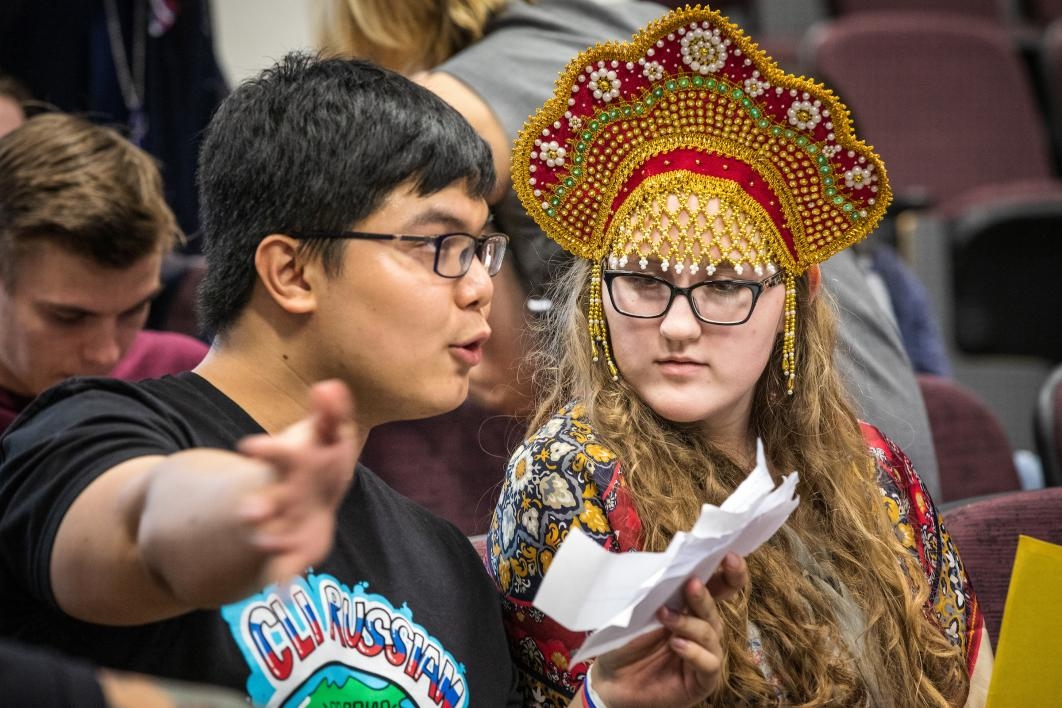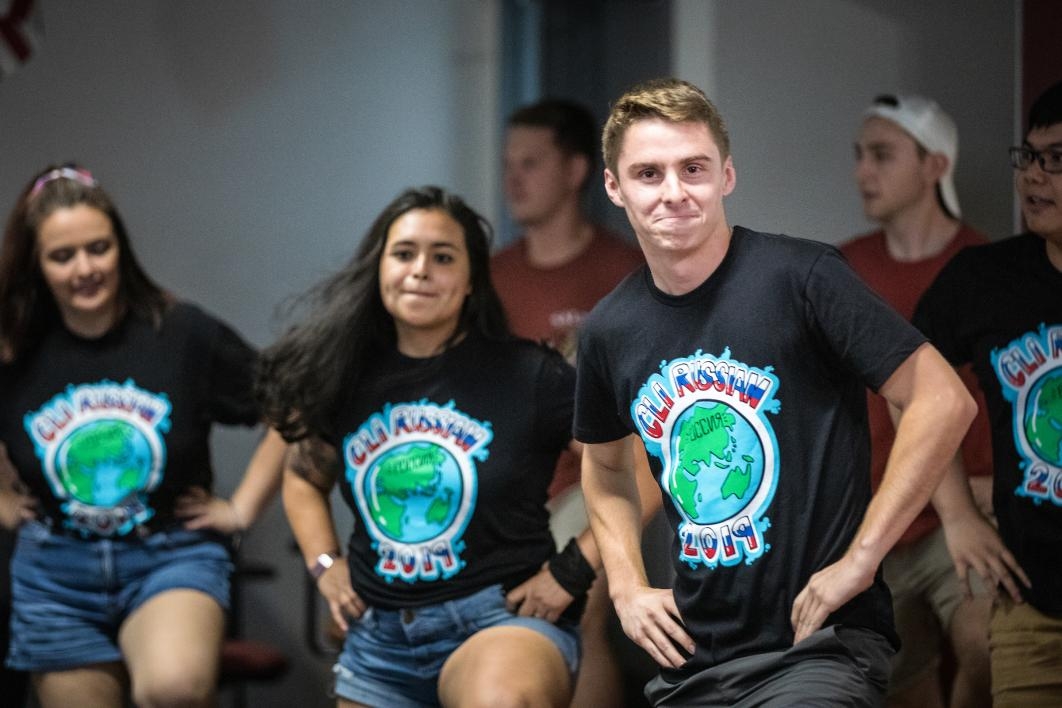New director hopes to shine light on ASU’s high-level language program
Critical Languages Institute fills need for intercultural, national security workers
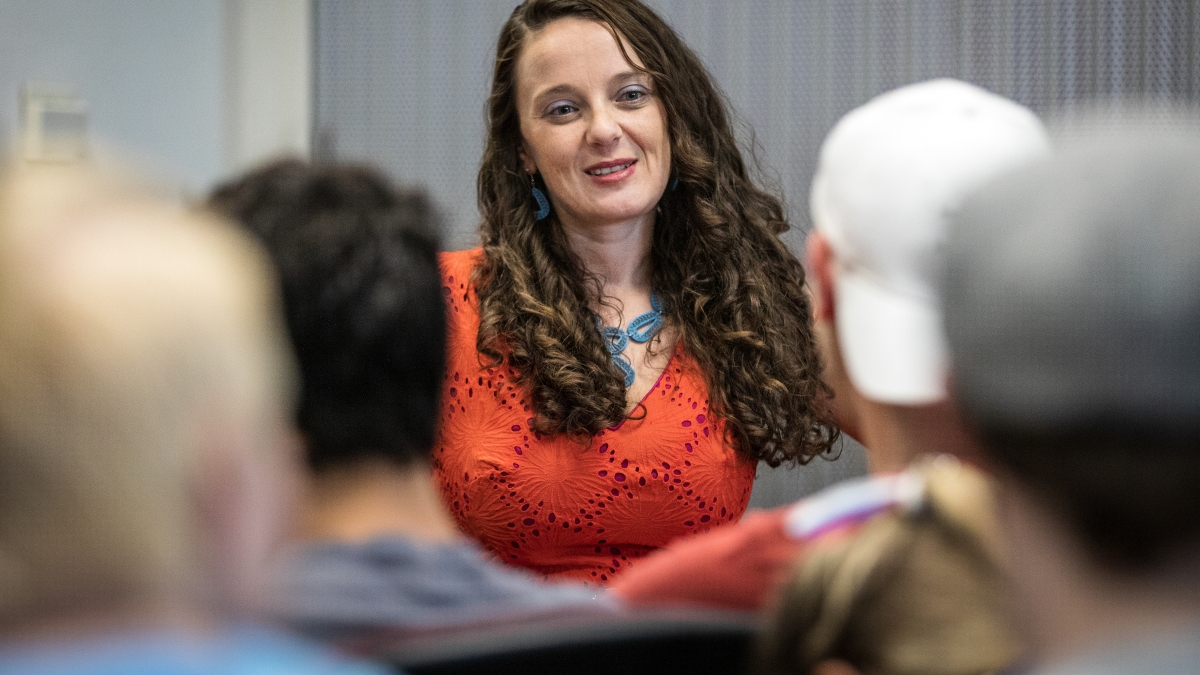
Irina Levin, the new director of the Critical Languages Institute at Arizona State University, sees a delicate balancing act in her goals.
The institute is a national training center for a dozen less commonly taught languages, such as Macedonian, and offers intensive courses and study abroad programs every summer. Students make remarkable progress in language acquisition through individual attention.
“Right now Armenian has three students and when I was in that classroom, it was week three or four and the whole class time was in Armenian. They were conversing. It was amazing,” Levin said.
“On the one hand, maybe that’s only possible because there were three students in the class but on the other hand, I wish more students could take advantage of this.”
Growing the institute's enrollment is a major goal for Levin, who took over as director in May. The institute is part of the Melikian Center for Russian, Eurasian and East European Studies, of which Levin is the associate director.
“The classes are small, but a big part of my role will be to figure out how to grow them sustainably, because if we don’t teach those languages, it’s not clear they will be available anywhere,” she said.
The Critical Languages Institute has 133 participants this summer, about a third of whom are ASU students. About 60% of the students take Russian and the rest are spread among 11 other languages — Bosnian/Croatian/Serbian, Macedonian, Albanian, Hebrew, Persian, Turkish, Uzbek, Indonesian, Ukrainian, Polish and Armenian. Courses are open to anyone, including high school juniors and seniors. Tuition is waived. Students earn eight or 10 ASU credits, depending on the language, for a flat fee of $1,500. Students who choose to extend their session with a study abroad trip earn additional credits.
The institute started in 1991, teaching one language — Macedonian. Over the years, as other languages were added, some were dropped, including Macedonian. Last year, the institute added Ukrainian, and this year, resumed Macedonian.
The institute participates in two prestigious federal programs: Project Global Officer, through the Department of Defense, trains ROTC cadets; and Title 8, through the State Department, offers language-learning fellowships to graduate students.
Levin answered some questions from ASU Now:
Question: Is teaching these languages important to national security?
Answer: Project Global Officer has a list of critical languages that are key to national security and we teach Russian and Indonesian, which are both on that list. The Department of Defense is looking to not just improve language skills but also for regional expertise and intercultural communication. That’s why with all of our languages, but especially Indonesian and Russian, we have a lot of cultural enrichment.
We also have Title 8 students, who study languages from the former Soviet Union or formerly socialist countries, like Russian, Macedonian, BCS, Armenian and Uzbek. That’s part of the State Department but the goal is similar to the Department of Defense — increasing regional expertise, language knowledge and intercultural competence.
So it’s not just a defensive approach to protecting our country, but a proactive, positive approach. I think when people think about language learning for national security, they sometimes think "Oh, we’re going to spy on them or infiltrate." But it’s for better relations and better understanding. It’s respectful to understand someone’s culture and language. It’s a positive thing that helps to build relationships.
Q: So students are learning more than just the language?
A: One thing that’s new this year for the Title 8 students in a pilot, which we may expand, is a one-credit online course on the geopolitics of the eastern European, Eurasian region. The idea was to create a Title 8 cohort and a feeling that they know each other even though they may be in different classes.
The concern with the fragility of democratic institutions there is a big part of it. It’s the idea of transition, but where does it lead to and when does it end? When are they done transitioning?
The reasoning for looking at Eurasia as a region and not just a place for countries that aren’t quite Europe and not quite Asia is that these countries have been out of the mainstream of academic study. Russia and the Soviet Union get a lot of attention. But places like Uzbekistan were seen only as the edge of the Soviet empire. But this brings it to the forefront.
Q: What other benefits do the students get from the CLI experience?
A: We set up visits with federal agencies; the CIA, FBI and NSA have all been here.
They come because they know what kind of program we are, and they talk about the benefits of having a language when you go into one of these agencies, including a higher pay grade but also more interesting work. If you are a Russian speaker or a Turkish speaker or a Persian speaker, which are all languages we offer, your application definitely gets a boost.
We also had Kyle Mox from the Office of National Scholarship Advisement come and talk about Boren and Fulbright and other international scholarships. Having done this summer program shows not just that you already have some language and that you can enter at an intermediate level, where there’s always less competition, but also your commitment.
Q: Besides increasing enrollment, what are your goals for CLI?
A: We want to make sure that the greater ASU community, our students, our online students, students at all the campuses, know about this opportunity. We still hear that this is not the most widely known program on campus.
We’ve been doing outreach but we want to make sure that they know we have scholarship funds available specifically for ASU students. And they are still eligible for other scholarships for particular languages.
There are diasporic communities around the country and even locally for whom the younger generation has a lot of language loss. We want to make sure they know about us.
I also see myself trying to think about how the program, because it is so intense, is nearly impossible to do while working full time. We do provide scholarships, but what more could we do to facilitate people from lower socioeconomic backgrounds to take this program? We don’t want to water down the program and say, "You only have two hours of class a day and two hours of homework." We could charge less for that but it won’t be the same amount of credits and we wouldn’t be getting the high level of achievement.
Q: How many languages do you speak?
A: I am a heritage speaker of Russian and Turkish I painstakingly learned through summer language programs. I did have various federal grants to do summer language learning in Turkey, one of which was the CLS, which we encourage our students to apply for.
I got my PhD from NYU in 2017 based on field work in Turkey, Georgia and Azerbaijan, looking at a group of people forcibly displaced form the Soviet Union in the 1940s. I was interested in the long-term impacts of forced displacements. How do people see spiritual and ancestral belonging and how does that interact with ideas about citizenship?
I was excited to come to Arizona because those issues are really relevant here — about borders and displacement and what used to be two villages now being on opposite sides of an international border and those citizenships becoming differently privileged.
Top image: Irina Levin, the new director of the Critical Languages Institute at ASU, attended a recent Russian Cultural Night celebration with students in the institute's Russian program. Photo by Charlie Leight/ASU Now
More Arts, humanities and education
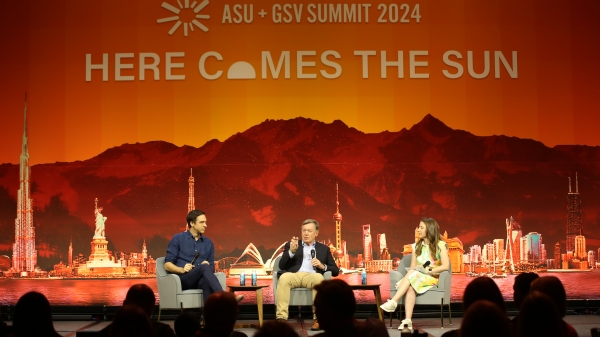
ASU+GSV Summit tackles big questions around AI, technology, education
Editor's note: We'll be updating this story daily throughout the summit. The annual ASU+GSV Summit kicked off in San Diego on Sunday, drawing thousands of leaders for a four-day event that focuses…
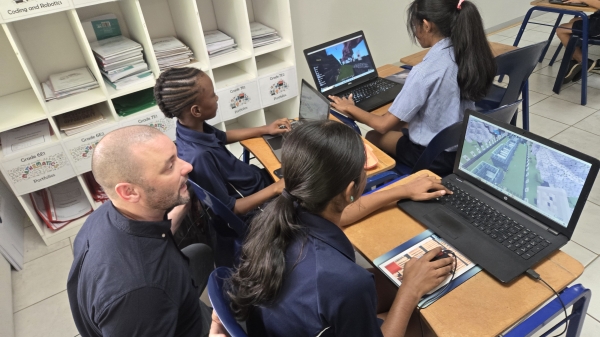
Game on: ASU, Endless announce partnership to scale personalized learning solutions
In a public conversation Monday about gaming and education at the ASU + GSV Summit, Arizona State University President Michael Crow and Endless Network founder Matt Dalio announced the creation of…

The Design School shines at interior design conference
The Interior Design Educators Council (IDEC) held its annual conference this March in New York City, welcoming interior design leaders who presented research, networked and learned about the latest…
